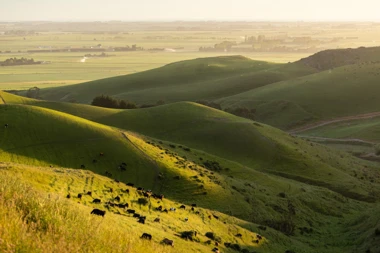
Our future

Healthy, well-managed soil supports productivity, season after season, generation after generation.
We partner with farmers to help them achieve production goals - without compromising the land’s ability to thrive. It’s what we call ‘smarter farming for a better New Zealand.’
Our commitment to a productive and sustainable future is rooted in two key pillars: advancing science and innovation and embracing guardianship for a more sustainable future.
Science never stands still - and neither should we.
We’re investing in the future of farming through innovation that has a measurable impact. From on farm tools to breakthroughs in soil health, we're backing science and tech that help farmers boost productivity while building long-term sustainability.
That means exploring technologies and ventures beyond fertiliser - solutions that add value today and create resilience for tomorrow.
Here are some examples:
If we care for the land, if we care for the people, we will take care of the future.

Guardianship and stewardship mean looking beyond the next season
Farmers naturally think long-term. We believe that building a legacy for future generations matters just as much as earning a living today.
That’s why we’re partnering with farmers and growers to achieve production goals by providing products, expertise, and tech that reduces environmental impact and optimises land use.
We’re also taking responsibility for our own footprint with actions like installing solar panels, improving our infrastructure, and meeting environmental compliance and other global standards.
Read our recent integrated report below to unpack more detail.